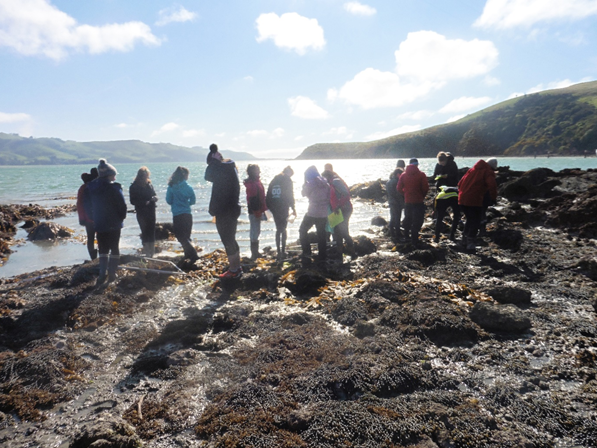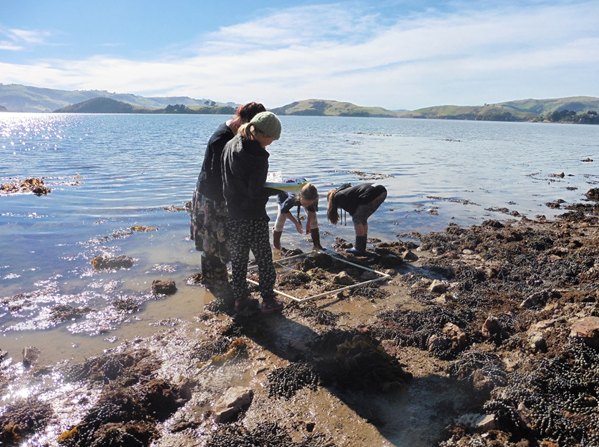Upon first glance, the rocky shore may not appear as an environment abundant with marine life however, many students and parents now know this is not the case. This realisation has been apparent throughout the past two years during the ‘Sediments and Seashores’ project. This project, which is about to commence its third year, is an ongoing collaboration between local schools and the Department of Marine Science at the University of Otago to monitor biodiversity (number of plants and animals) and the amount of sediment present along the rocky shore.
Established in 2016, Sediments and Seashores was created in response to concerns about potential changes that may occur in the Otago Harbour as a result of the Port Otago: Next Generation dredging project. As the rocky shore is accessible and on the boundary of land and sea, this environment was selected to be monitored over time.
The project is designed to be a facilitated citizen science project, in which scientists assist and prepare students to collect data at a standard to be used by scientists for environmental monitoring. Students took part in discussing the purpose for the project, data collection methods and entering the data into a nationwide database. They were also encouraged to report back to their schools and the wider community about their classes’ findings and things they had learnt or found interesting.
The project has been growing each year as the focus changes from refining methods to validating and quantifying the data. This could not have been possible without the engagement and commitment of all the students, teacher and parents who have participated so far or without funding from the Curious Minds project.
If you are keen to discover more on the rocky shore, visit www.mm2.net.nz for resources and a guide on how to complete your own survey along the rocky shore. And don’t forget to add your own findings to the database! You too will be amazed at what you will find.
For more information contact the New Zealand Marine Studies Centre (Phone: 03 479 5826, Email: marine-studies@otago.ac.nz)
*Aless will give a brief presentation on her work at Sea Speak, 7pm, 8 March at the University of Otago Rowing Club. Please see the following website for further information on this event: https://www.orc.govt.nz/news-and-events/events/2018/march/sea-week-sea-speak


